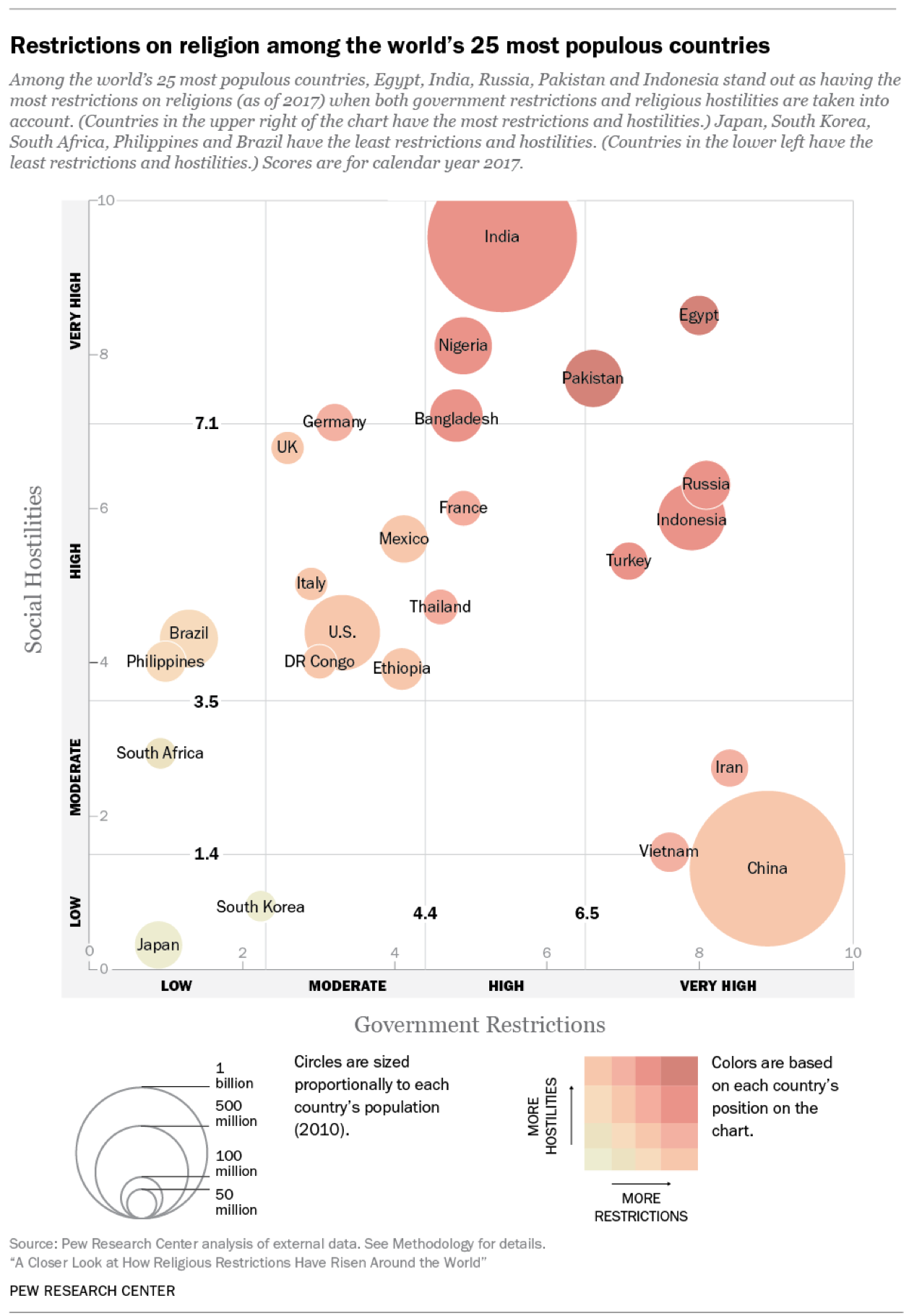More than 5 billion people – or three-quarters of the world’s population – live in the planet’s 25 most populous countries, including China, India and the United States. Looking at restrictions in these countries can give insight into how large segments of the world’s population are affected by government restrictions and social hostilities involving religion, although not everyone within each country’s borders is impacted equally.
In 2017, among the 25 most populous countries, Egypt, India, Russia, Pakistan and Indonesia had the highest overall levels of both government restrictions and social hostilities involving religion. The countries in this group with the lowest overall scores were Japan, South Korea, South Africa, the Philippines and Brazil.
The highest government restrictions among the most populous countries occurred in China, Iran, Russia, Egypt and Indonesia, with all ranking in the “very high” category of restrictions. Meanwhile, the lowest-ranking countries were South Africa, Japan, the Philippines, Brazil and South Korea. These countries fell into the “low” category of government restrictions, with the exception of South Korea, which had a “moderate” level of government restrictions on religion in 2017.
The very populous countries with the highest levels of social hostilities involving religion were India, Egypt, Nigeria, Pakistan and Bangladesh, with all five experiencing “very high” levels of hostilities. Japan, South Korea, China, Vietnam and Iran had the lowest levels of social hostilities among the world’s 25 most populous countries; all were either “low” or “moderate.”
In some countries, levels of government restrictions roughly matched levels of social hostilities. For example, Egypt and Pakistan had “very high” levels of both government restrictions and social hostilities in 2017, while Japan scored “low” on both indexes. In other cases, the two scores diverge sharply. China had the highest level of government restrictions among all 198 countries in the study in 2017, yet it had low levels of social hostilities. And Iran had the second-highest government restrictions score among all countries in 2017 – behind China – but experienced only “moderate” levels of social hostilities involving religion.
In 2017, none of the 25 most populous countries experienced large changes (2.0 points or more) in Government Restrictions Index (GRI) scores. Two countries – Vietnam and the Democratic Republic of the Congo – experienced modest increases (1.0 to 1.9 points) in GRI scores. Vietnam moved from “high” to “very high,” while the Democratic Republic of the Congo climbed from the “low” category to “moderate.”
When it comes to changes in Social Hostilities Index (SHI) scores, none of the most populous countries had large changes. However, five countries – Turkey, Iran, Japan, South Africa and Russia – had modest declines. Japan declined from “moderate” to “low” levels of social hostilities involving religion, while South Africa’s score went from “high” to “moderate,” and Russia moved from “very high” to “high.” Meanwhile, Ethiopia had a modest increase in its SHI score, shifting from “moderate” to “high” levels of hostilities.
